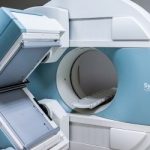UK steps up quantum investments with £40m

(EE.NewsEurope) Alongside the CryoConsortium and QEC project announced last week, the UK is also backing other new quantum projects with £40m. These include gas leak detection for the hydrogen industry, quantum clocks for GNSS satellite timing, machine learning to control different types of qubits and cryogenically cooled CMOS devices.
The UK’s National Quantum Technologies Programme (NQTP) started in 2014 and continues to act as a strategic funder and catalyst for the growing UK quantum industry.
Roger McKinlay, Director of UK Research and Innovation’s £170m Commercialising Quantum Technologies Challenge said, “This funding is already encouraging the private investment needed for the UK to turn its scientific lead in to an industrial one, creating jobs, exports and economic benefits.
Alongside the CryoConsortium and QEC project announced last week, the UK is also backing other new quantum projects with £40m. These include gas leak detection for the hydrogen industry, quantum clocks for GNSS satellite timing, machine learning to control different types of qubits and cryogenically cooled CMOS devices.
The UK’s National Quantum Technologies Programme (NQTP) started in 2014 and continues to act as a strategic funder and catalyst for the growing UK quantum industry.
This follows the joint statement of intent to boost collaboration on quantum technologies between the UK and US.
The HYDRI consortium’s HYDrogen sensoR for Industry project has received £2.5 million to develop quantum technology to detect gas leaks.
The Aeon-Rb project, led by HCD Research, has received £2.5 million to develop quantum clocks for for national infrastructure. Much of this infrastructure relies on Global Navigation Satellite Systems (GNSS) for a stable clock signal, but these signals are easily disrupted and prolonged GNSS unavailability can lead to vast disruption to critical UK services and economy, with the cost of a five-day outage estimated at £5.2bn.
The calcium ion frequency standard (CIFS) project, led by TMD Technologies, has received £2.1 million to develop a highly accurate trapped ion quantum clock that is much smaller, lighter, more portable and more rugged than current designs.
The £4.3m Altnaharra project, led by Quantum Motion Technologies, aims to a cryogenic chip for integrated qubit control and readout, manufactured in a standard CMOS foundry.
The autonomous quantum technologies (AutoQT) project, led by Riverlane, has received £5.3m to solve the problem of controlling hundreds or even thousands of qubits using machine learning.
ORCA Computing Ltd will research how quantum computing can integrate with the data centres that currently underpin and drive the digital economy in a £9m project.
Satellite developer Arqit is also leading a £3m project to support the development of quantum-safe encryption technologies for satellite-based communication networks, helping to ensure robust data security in the long term.
£2.7m is going to the Sonardyne International-led Underwater single photon imaging system project. It will use photon detection to create high-resolution 3D maps of the sea floor, supporting installation and operation of offshore wind energy, environmental monitoring and defence applications.
£3.1m is going to the UpScale project to develop scalable quantum information enabled by integrated optics. It will bring together five commercial partners, led by Fraunhofer UK Research, to develop scalable quantum computing technologies that could revolutionise many industries with applications ranging from drug discovery to supply chain management



















